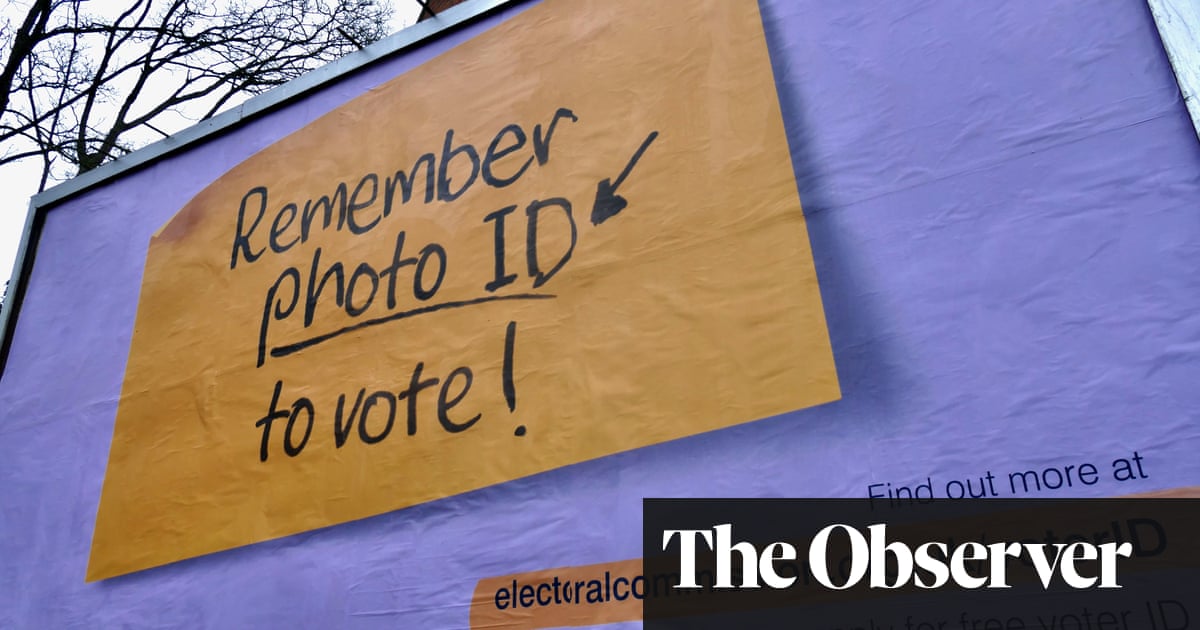
Britons will have to show photo ID to vote in future general elections, ministers are poised to confirm this week, as a means of tackling fraud which critics claim could deter poorer and ethnic minority voters from taking part in democracy.
The proposal is to be included in Tuesday’s Queen’s speech, which will set out the government’s post-pandemic priorities and the laws it intends to pass in the forthcoming parliamentary session.
However, the dozens of announcements are unlikely to include details of long-awaited reforms to funding for adult social care, a 2019 Conservative manifesto promise which has been parked pending cross-party discussions.
A requirement that all voters carry photo ID could impede people who wish to turn up at polling stations without planning ahead, given about a quarter of voters – often younger voters – do not have either a passport or driving licence, critics say.
The government has previously said people would be able to apply for a voting ID card from their local council, although this would have to be done before polling day. Early trials in some areas led to hundreds of voters being turned away.
The voting reforms, which will also include a limit on the number of postal votes that can be handed in on behalf of others, are being justified by ministers as a way to reduce the risk of electoral fraud. However, the Electoral Commission says the country “has low levels of proven electoral fraud”; in 2019 there was just one conviction and one police caution for impersonating another voter.
American civil rights groups have already warned Britons that such measures are often used to disfranchise voters who do not have the required paperwork. The changes would affect UK-wide and English elections, while voters in Northern Ireland are already required to show identification before voting.
While ministers are pressing ahead with electoral reforms, they have found it harder to draw up a plan to reform the social care system.
The Cabinet Office minister Michael Gove told Times Radio that a proposal will be “heading for the statute books” by the end of the year but is unlikely to form part of this week’s Queen’s speech. “We’re working to make sure that we have an effective social care plan at the moment,” he said. “That work is going on. So, by the end of the year you will have a specific social care plan that is heading for the statute books at the very least.”
He said a major issue was building cross-party support for reforms, given the political issues around the funding of adult social care to look after people with additional needs or older individuals with conditions such as dementia. The Conservatives are still scarred by memories of their 2017 general election campaign imploding after a proposal to require property owners to sell their own home to fund long-term care – thereby eating into their descendants’ inheritance – was dubbed the “dementia tax”.
Last week the Daily Telegraph claimed that the chancellor, Rishi Sunak, was concerned about the multibillion-pound cost of reforming social care, prompting the government to delay bringing forward firm proposals. The newspaper reported that one proposal, which would cap the maximum contribution at £35,000, would largely benefit wealthy homeowners in south-east England.
Vic Rayner, chief executive of the National Care Forum, said: “We need to move forward from the place of rhetoric to action – specific action that will propel the sector from the position of recovery to sustainability and growth. Now is the time for long-term ambition not yet another quick fix.”
The Queen’s speech will take part in reduced circumstances this year with the level of pageantry toned down due to social distancing.












